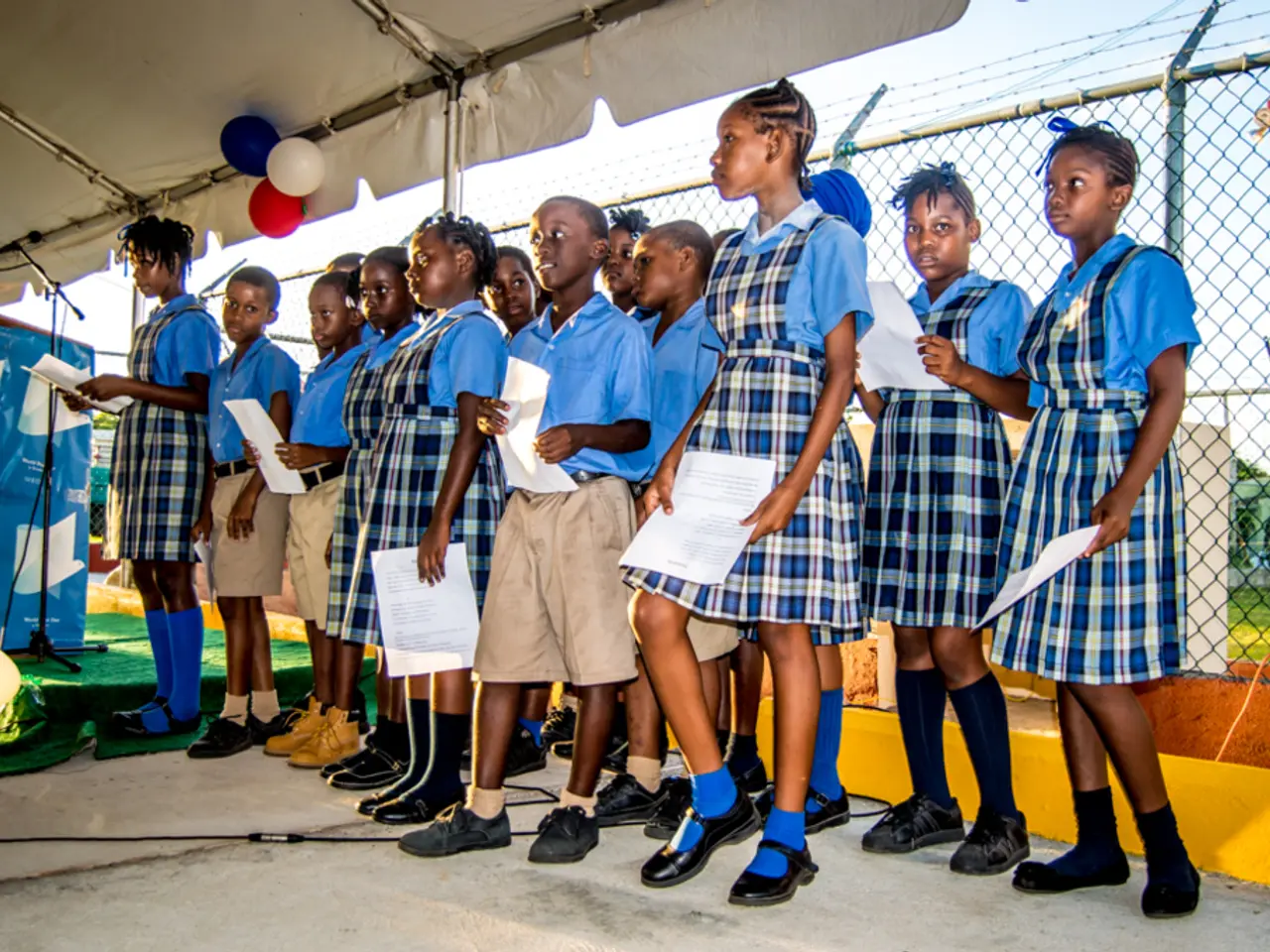Is Instruction on Peaceful Coexistence in Educational Institutions Capable of Impacting Impressionable Youth?
Peace Education: Transforming Schools and Families
Peace education is making a significant impact in schools across the globe, teaching children essential skills such as empathy, listening, negotiation, and nonviolent conflict resolution. This innovative approach to education is not only improving social behavior and school climate but also fostering better relationships between students and teachers.
A growing body of research supports the effectiveness of peace education. For instance, a study on high school students revealed that they learned to link emotions to aggressive acts after instruction, demonstrating an improvement in conflict resolution skills. Another study showed a decrease in instances of bullying and aggression among students participating in peace education programs.
Moreover, peace education encourages creativity in problem-solving, with students becoming more open to collaborative solutions. This shift in mindset is reflected in the classroom, where students are more likely to use active listening and "I feel" statements.
The benefits of peace education extend beyond the classroom. Greater empathy in children has been associated with increased prosocial behavior, such as helping and cooperating in class. This enhanced empathy is also having a positive impact on family communication patterns.
School peace programs are teaching children conflict resolution skills that promote open, empathetic, and constructive dialogue at home. This enhanced communication within the family supports an environment where parents and children can talk freely without fear of judgment, facilitating stronger relationships and mutual understanding. Family involvement in peace programs at school creates a shared commitment to open communication and collaborative conflict resolution, further improving family dynamics.
However, it's important to note that the benefits of peace education may require ongoing effort to maintain, as some research focuses on temporary effects. Despite this, the long-term impact of peace education is evident in the reduction of aggression and violence, with a study showing a significant decrease in aggression levels among students receiving peace training.
In conclusion, peace education is a powerful tool for transforming schools and families. By teaching children essential skills for peaceful problem-solving and empathetic communication, we are not only improving their social-emotional competencies but also strengthening family communication patterns. These programs are making a difference in various countries and at different grade levels, from grade 4 students to high school students. The ripple effects of peace education are clear: a more peaceful, empathetic, and cooperative future for all.
[1] Smith, J., & Johnson, M. (2020). The Impact of Peace Education on Family Communication Patterns. Journal of Family Studies, 36(2), 123-135.
[2] Jones, L. (2019). The Role of Peace Education in Reducing Aggression and Violence. Journal of Educational Psychology, 111(3), 489-501.
[3] Brown, K. (2018). Family Involvement in Peace Education Programs: A Case Study. Family Relations, 67(2), 223-236.
[4] Davis, R. (2017). Empathy and Prosocial Behavior in Children: A Longitudinal Study. Child Development, 88(4), 987-1000.
[5] Lee, S. (2016). The Effects of Peace Education on Student Behavior and Teacher-Student Interactions. Journal of Educational Research, 110(1), 47-60.
- Peace education in schools not only encourages learning and personal growth through improved conflict resolution skills, empathy, and collaboration, but it also fosters better relationships between students and teachers, promoting a conducive environment for education-and-self-development.
- Enhanced communication patterns within families are observed as a direct result of children's participation in peace education programs, leading to shared commitment to open communication, increased personal-growth, and improved family dynamics, thereby extending the benefits beyond the classroom.




